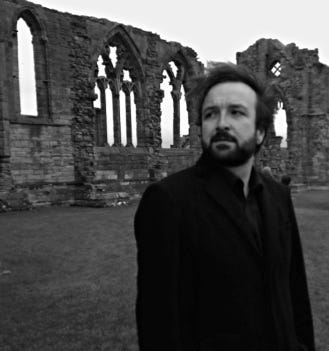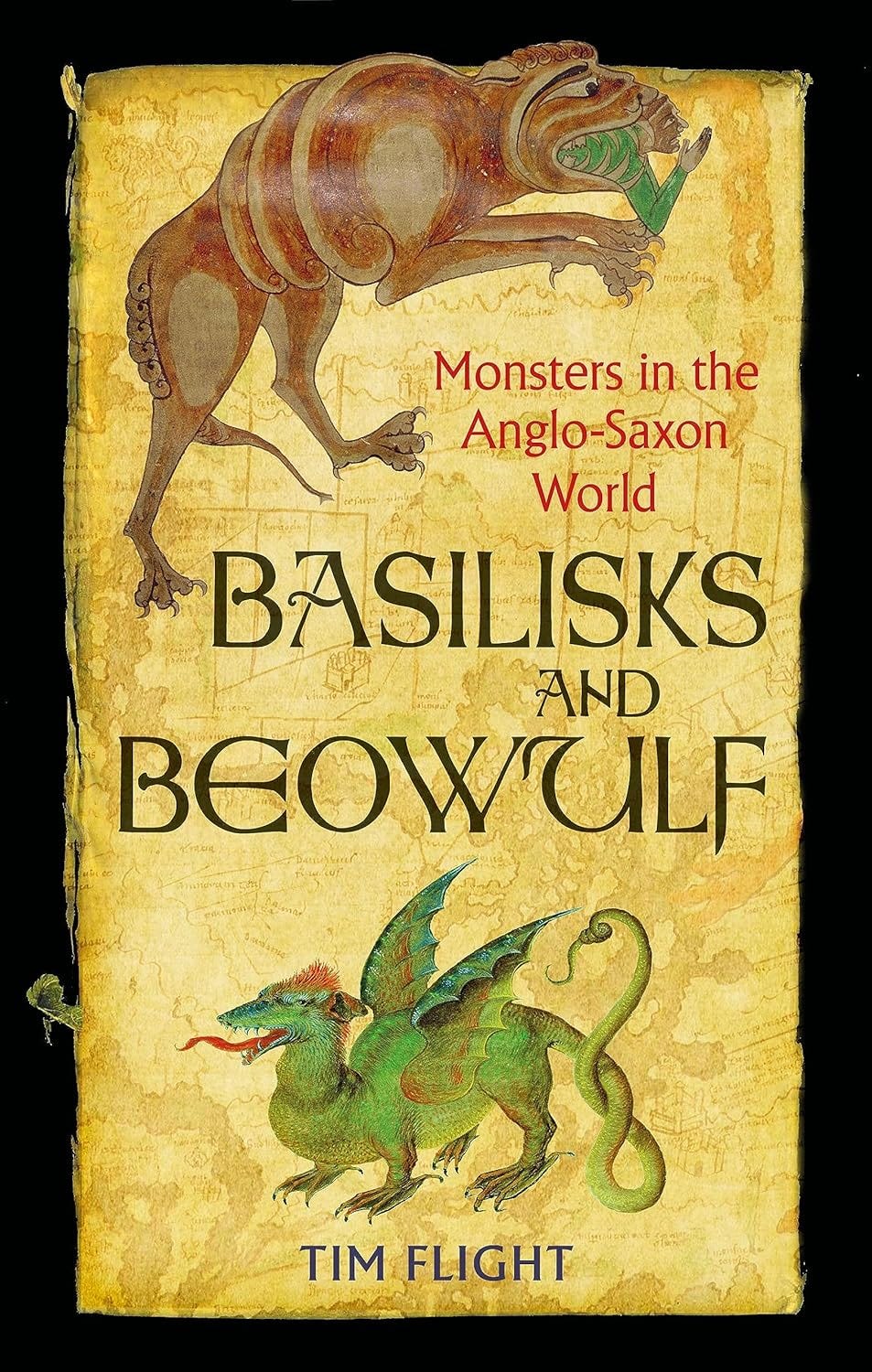Hi, friends,
I had so much fun talking to Tim Flight that I’ve decided to release the conversation as a podcast, like some sort of protein-shake-swigging tech bro.
Like a tech bro, I am making this up as I go along and pretending to know what I’m doing, but unlike a tech bro, I’ve got no idea how to add an audio intro to this conversation. So for now, here’s a written intro to Tim and our chat. Baby steps.
Tim’s book, Basilisks and Beowulf: Monsters in the Anglo-Saxon World, is what we in the trade call an absolute belter. I’ve been banging on about it for about a year and a half now. It lit me up because it is a vital piece in the puzzle I’ve been trying to slot together for years, about the English, and where the streak of vicious fearfulness in the national psyche came from. How did we come to colonize a quarter of the world, get rich on human trafficking, and instigate the industrial revolution? The picture Tim paints of the earliest English (though not, of course, the earliest British) as a fearful people, ashamed of their pagan pasts, forever trying to beat back the heathen wilds as they huddled at the northernmost reach of the Christian empire centred in Rome: discovering this picture was an aha moment for me.
Tim and I chatted about monsters, the through-line from the original Anglo-Saxon invasion to both modern-day colonialism and the Right to Roam movement, the Anglo-Saxon fear of wolves as a possible remnant of an earlier shamanic culture, Anglo-Saxon mysticism, whether theology is stupid, altered consciousness, ways of knowing, and probably lots of other things I’m forgetting. I really loved chatting to him, and I hope you’ll enjoy it too.
I’m aware that I’ve been talking a lot on this Substack about England and Englishness, these past few months. I want to apologize if this feels alienating to anyone. That’s not my intention at all—in fact, I’m digging in to the deep roots of Englishness and WASP culture because I think it’s critical to understanding the state of the world more broadly today. Between the British Empire, which covered about a quarter of the world at its peak, and the fact that the traditional ruling class of the United States has been descended from Anglo-Saxon stock—the global impact of Englishness has been extraordinary and entirely outsized. Beyond colonialism, I also think the story of Englishness can help us understand the dissociated, disembodied quality of the “modern” psyche, both in England and much farther afield, and how and why so many people around the world feel so lost and lonely and severed from meaning. I’m trying to get to the bottom of this not just for the benefit of people who identify as English, but for all those who come from or live in places that have been affected by English or American imperialism—which is pretty much every place, at this stage of the world’s unfolding.
One note: I used my audio editing skills, which are about equivalent to those of a particularly stupid Labrador, to cut a part where I got overexcited and revealed more than I generally want to right now about the novel I’m working on. So sorry about the glitch towards the end of the recording.
OK. That’s all from me for now. Please do let me know if you enjoy this branch out into audio; if you enjoy it, and if I can get the tech stuff down, I’d like to do a lot more of it.
Love,
xx Ellie





Share this post